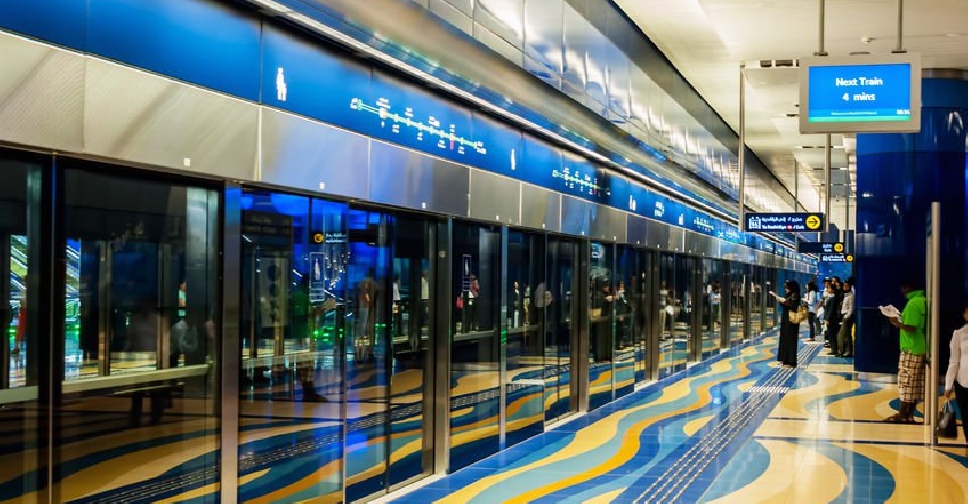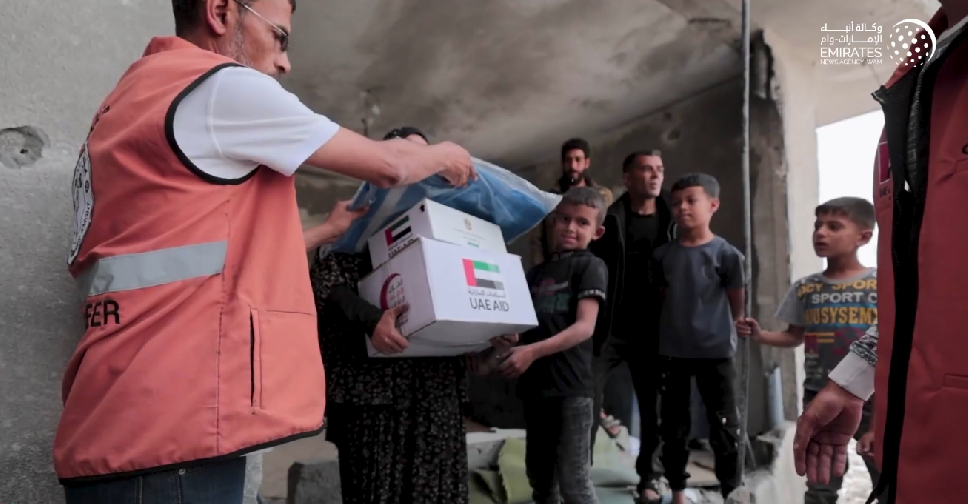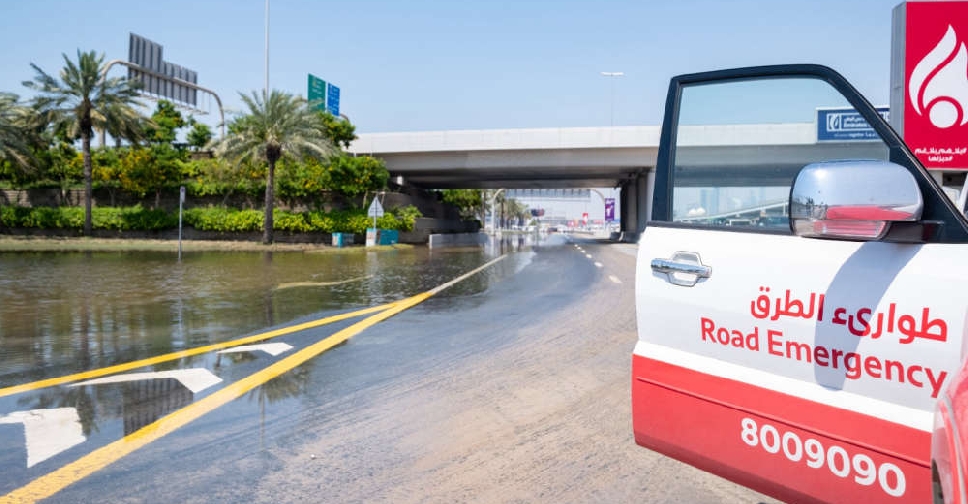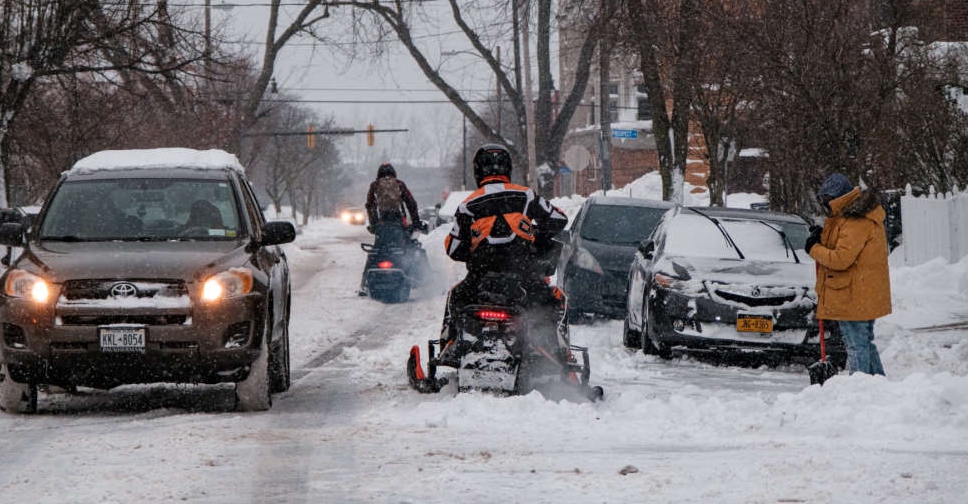
Thousands of western New Yorkers were digging out from under four feet of snow (1.2 meters) dumped during a deadly Christmas blizzard, even as the National Weather Service predicted a final two inches of snow on Tuesday.
Western New York was hardest hit by an Arctic deep freeze and sprawling storm front that extended over most of the United States for days as far south as the Mexican border.
"It's still snowing. But it's nothing compared to what they got in the last few days, but it could impact snow removal," said Bob Oravec, a meteorologist with the NWS Weather Prediction Center in College Park, Maryland.
"This is probably the last of the snow," Oravec added. "It'll be warming up soon. By Thursday the high will be 46 (8 degrees Celsius). By Saturday it'll be 54 (12 C)."
But Tuesday remained cold, with a high of 28 F (minus 2 C) and a low of 20 F (minus 6 C), Oravec said.
Across the country, at least 60 lives have been lost in weather-related incidents in recent days, NBC News said.
Buffalo, New York state's second largest city, was ground zero for the blizzard that took shape on Friday. Governor Kathy Hochul called it an "epic, once-in-a-lifetime" weather disaster.
According to a New York Times toll on Tuesday, more than 30 storm-related deaths have been reported in western New York's Erie and Niagara counties.
Some of those who died were found frozen in cars, others in snowbanks outside, and still others from medical emergencies such as cardiac arrest while shoveling snow, said Erie County's chief executive Mark Poloncarz.
The county issued a "Shovel Smart" alert warning that the over-exertion from "shoveling heavy, wet snow can cause back injuries and heart attacks."
Hundreds of electric company linemen were out restoring power, and Poloncarz said on Twitter that about 10,000 customers remained without electricity. Road crews cleared downed trees with chain saws and removed snow from at least one lane so emergency crews could get through main roads.
A driving ban for residents remained in effect for all of Buffalo.
In metro Atlanta, dusted by rare snowfall on Monday night and early Tuesday, the weekend’s bitter cold caused pipes to burst. Residents were stranded in their homes and without water and some roads were slick with ice.
Several residents had to be rescued from an Atlanta apartment building after a burst pipe flooded the first floor.
In Jackson, Mississippi, plagued with a failing water system, the Clarion Ledger reported that the freeze led to broken water pipes, low water pressure and a citywide boil-water notice.
Jackson Mayor Chokwe Antar Lumumba declared a local state of emergency on Monday. Water distribution stations were set up.
About 122,000 homes were without power across the United States on Tuesday, down from a peak of 1.8 million on Saturday, according to PowerOutage.us. About 72% of those still without power were in Oregon and California. The California-Oregon border area has seen strong winds and heavy rains this week.

 India begins voting in election as Modi seeks historic third term
India begins voting in election as Modi seeks historic third term
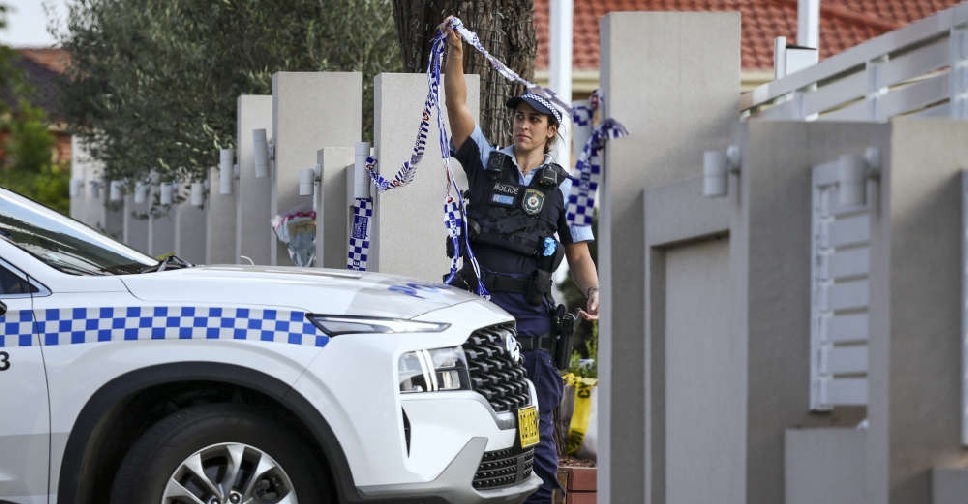 Teenager charged with terrorism over Sydney bishop stabbing
Teenager charged with terrorism over Sydney bishop stabbing
 Kenya's military chief among 10 killed in helicopter crash
Kenya's military chief among 10 killed in helicopter crash
 Security Council to vote on Palestinian UN membership
Security Council to vote on Palestinian UN membership
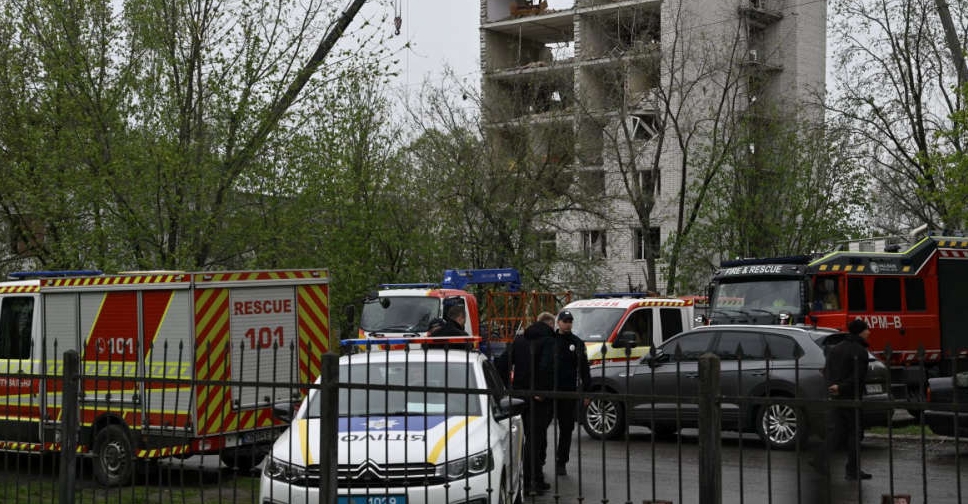 Toll from Russia's deadliest airstrike on Ukraine in weeks rises to 18
Toll from Russia's deadliest airstrike on Ukraine in weeks rises to 18

